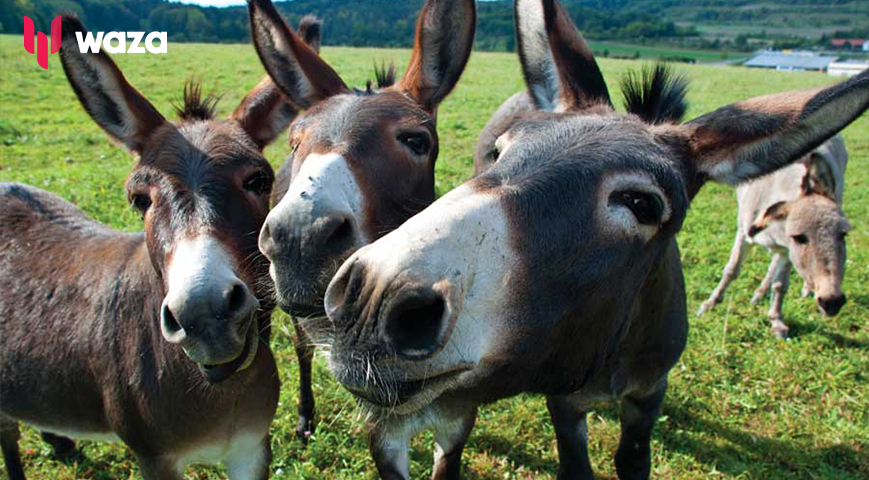The declining donkey population has become a significant concern for animal welfare advocates, raising fears of potential extinction if proper measures aren't taken to regulate their treatment and prevent trafficking. In many African communities, donkeys are not seen as pets but as essential work partners, often subjected to harsh conditions without consideration for their well-being, such as proper nutrition, maternity leave, or rest.
Many donkey owners are accused of mistreating these animals, denying them basic rights while expecting continuous labor. Common abuses include restricting donkeys' mating rights, overworking them, neglecting their medical needs, overloading, and even resorting to corporal punishment. Animal welfare activists argue that such treatment should be criminalized under animal cruelty laws.

Experts point out that in Kenya, beliefs about the gender of donkeys influence how they are treated. Female donkeys are often castrated or injected with chemicals to prevent reproduction, ensuring their work cycle isn't disrupted. Women prefer female donkeys, considering them more obedient, while men favor males, believing them to be stronger and more hardworking.
Did you read this?
In recent years, the donkey population has seen a sharp decline due to multiple factors, including increased demand for donkey meat and skin between 2016 and 2019. This surge led to the establishment of licensed slaughterhouses, although a successful campaign led to their closure. Despite this, illegal donkey meat and skin trafficking persists, with reports of secret slaughterhouses and unsuspecting Kenyans being sold donkey meat. The Kenyan government has banned commercial donkey slaughter, but theft of the animals remains an issue.

Other factors contributing to the decline include extreme weather conditions like droughts, which affect donkey survival. Biological challenges also play a role, as donkeys rarely give birth to twins, and artificial insemination is difficult due to the anatomy of their reproductive system.
Experts advise donkey owners to allow natural reproduction by keeping both male and female donkeys without interference. Advocates emphasize the importance of treating donkeys humanely, providing proper nutrition, and allowing them maternity leave. This would not only boost the donkey population but also contribute to household welfare and the economy. On World Animal Day, celebrated October 4th, the theme "The world is their home too" highlights the importance of promoting animal welfare globally.









